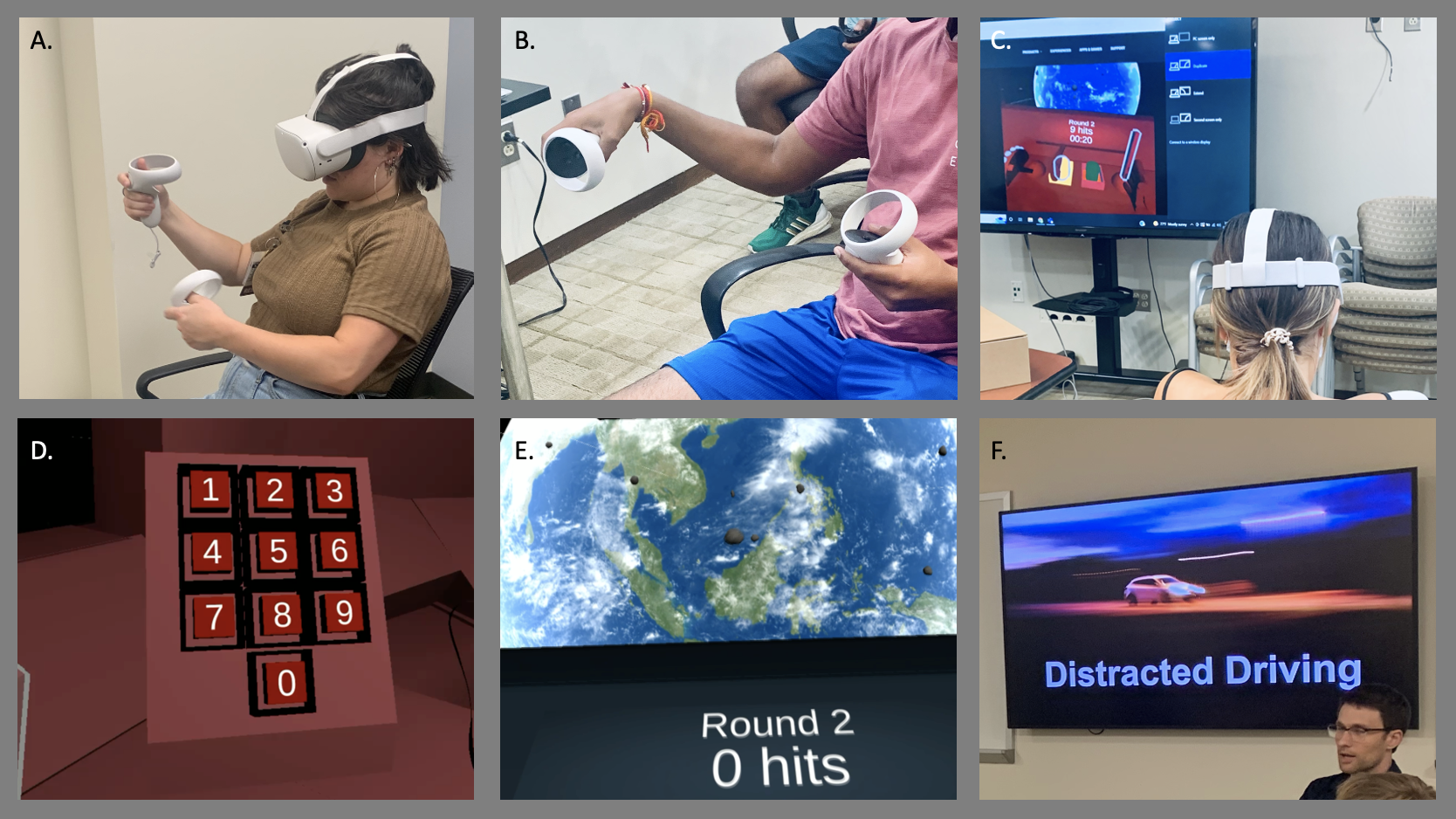Injury Prevention
Session: Injury Prevention 2
386 - More Aware of the Consequences: A Mixed Methods Evaluation of a Virtual Reality Game to Enhance Teen Distracted Driving Education
Saturday, May 4, 2024
3:30 PM - 6:00 PM ET
Poster Number: 386
Publication Number: 386.1136
Publication Number: 386.1136
- TV
Timothy Visclosky, MD (he/him/his)
Clinical Assistant Professor, Division of Pediatric Emergency Medicine
University of Michigan Medical School
Ann Arbor, Michigan, United States
Presenting Author(s)
Background: Motor vehicle crashes are the leading cause of teenage mortality worldwide. Novice teenage drivers, due to their inexperience and extensive cell phone usage, are at heightened risk of distracted driving behaviors (DDB). Traditional driver education has shown limited effectiveness in reducing crashes.
Objective: To pilot a virtual reality (VR) game as an innovative approach to educate novice teenage drivers about the risks of DDB.
Design/Methods: We developed a VR game called "Distracted Navigator", consisting of two rounds of gameplay: the first round involved navigating a spaceship around asteroids, while the second round included additional multitasking tasks like entering numbers into a keypad while the player navigated the ship around asteroids. Facilitated discussions incorporated the Theory of Planned Behavior concepts to connect gameplay experiences with real-world driving scenarios. We recruited teenagers from a single high school who were eligible for driver training, distributing them into two groups: an intervention (VR gameplay/discussion) and a control group (discussion without VR). We employed pre- and post-surveys and conducted focus group interviews to gauge the impact of the VR gaming experience and discussions on DDB-related beliefs and intentions.
Results: The study cohort was primarily male (62.5%), with an average age of 15.8 years. Ethnic composition included 61.9% White, 28.6% Asian, 4.8% Black, and 4.8% American Indian/Alaska Native participants, all owning cell phones. Around 60% reported never texting while driving. Compared to the control group (n=7), intervention group (n=17) was more likely to say the session changed overall attitudes towards texting and driving (p=.015). However, specific intentions and attitudes remained consistent between groups. Pre-post scores for the entire sample indicated reduced confidence in texting while driving (perceived behavioral control; p=.005). Qualitative analysis revealed recurring themes: 1) Participants valued the interactive nature of both VR game and discussions; 2) VR gameplay effectively conveyed real-world consequences of texting and driving; 3) Both VR game and facilitated discussions were perceived as essential components in raising awareness about DDB, emphasizing their complementary roles.
Conclusion(s): Our study highlights the potential of immersive VR games to convey consequences of DDB. Findings suggest interactive discussions with VR can raise awareness of DDB consequences, offering a promising avenue for enhancing driver education.

